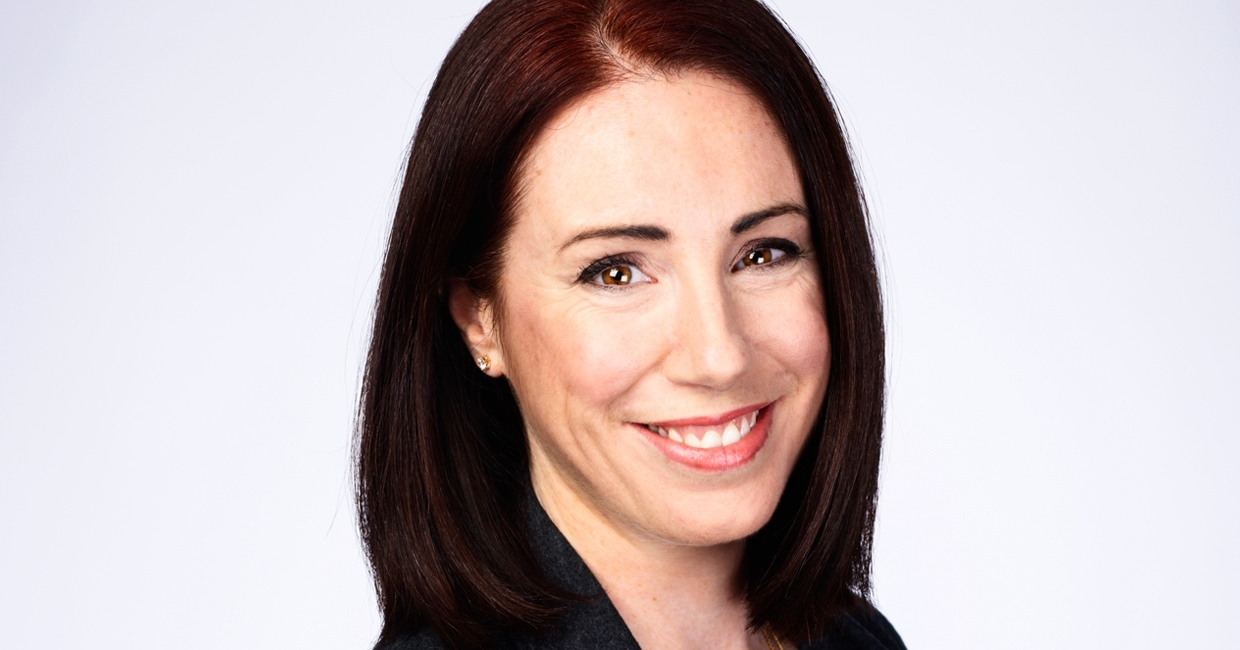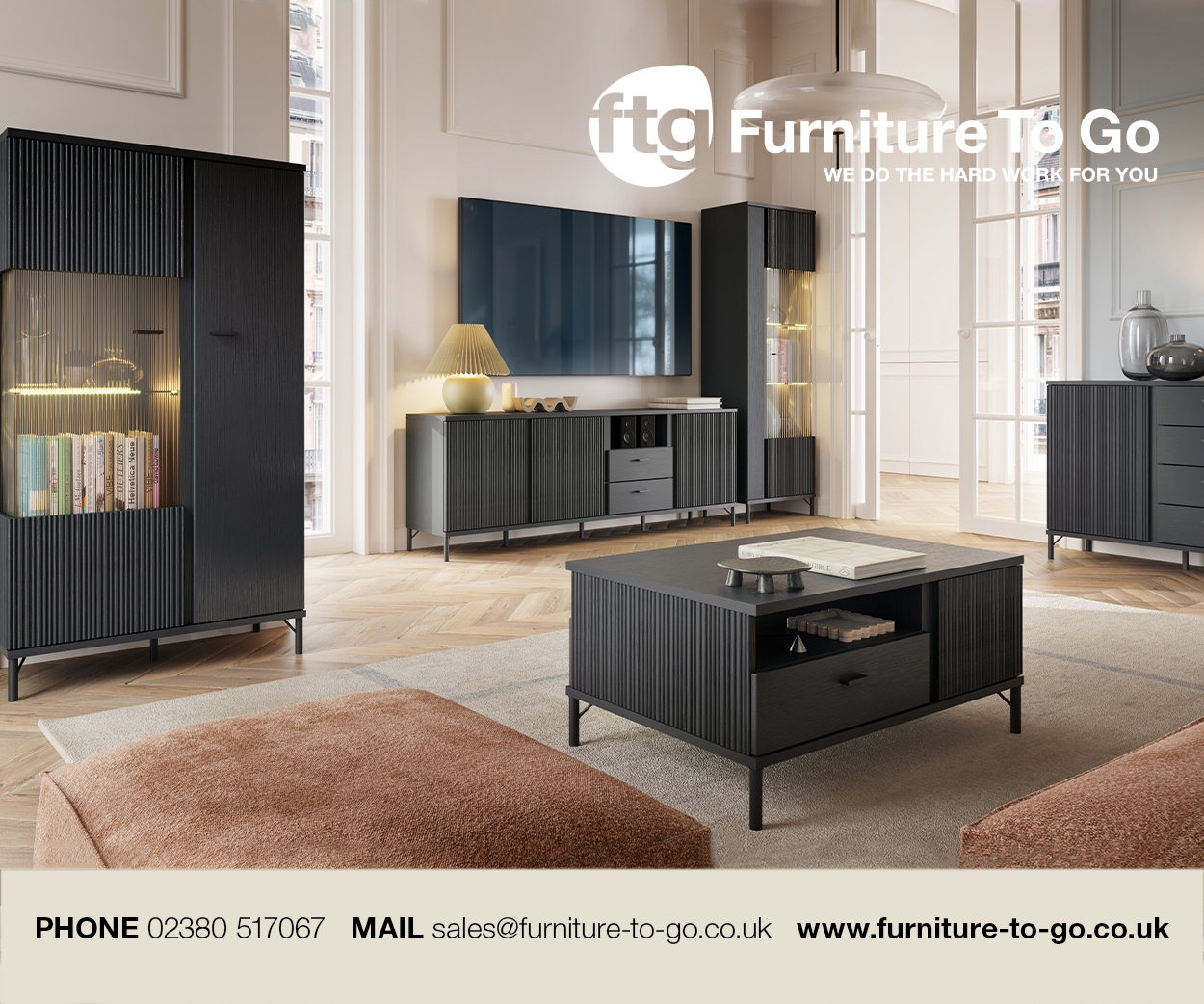The UK furniture industry remains a male-dominated environment, but women are increasingly making the decisions which shape the sector. In April's Furniture News, we asked some of the trade’s leaders to offer their views on gender politics, female recruitment and the rate of change – here's what DFS' Kate Wright had to say …
After working with notonthehighstreet.com, Dunelm, The Sofa & Chair Company and Sofa Workshop, creative marketeer Kate was appointed DFS Group’s head of sustainable product development in 2020 (covering DFS, Sofology, Dwell and The Sofa Delivery Company).
Day to day, how aware are you of the furniture industry’s gender balance? Is equality important to you?
Equality is very important to me – as it should be to everyone, male or female. Although furniture manufacturing and logistics continue to be male-dominated, in part due to the physical requirements of the large product, the DFS Group is actively working to address the gender imbalance within the business. Most manufacturing partners, especially those in the UK, tend to be very respectful, and though I am regularly the only woman in the room, I feel comfortable and heard.
At the start of your career, were you made to feel welcome by the trade, or did you have more obstacles to overcome than a man might?
Coming to the industry within a marketing role initially perhaps made my entry into the industry a little easier, as marketing tends to be more gender-balanced than other areas. At times, it felt challenging to be heard and voice an opinion in group scenarios – especially a dissenting viewpoint – but this can be addressed with assurance, persistence and by building credibility.
Is there anything you know about women and the workplace now that you wish you’d known sooner?
If we don’t talk about it or call out specific instances of gender bias, nothing will change. I wish I had felt more comfortable to speak out when subjected to misogynistic behaviours when I was younger, as it would have made a difference – not only to my own career, but potentially for others that followed. I am hopeful that the ‘me too’ movement has empowered younger women to address and seek redress when it occurs, and that men are more mindful of the impact they can have.
Feedback can be given in a constructive way, and I think men are generally unaware of the impact they have or how they create bias in the workplace, so it is essential that women call it out when it occurs and address it. Which is hard to do.
Can you share an anecdote/example of a time you felt held back or discriminated against due to your sex?
I can think of several of varying degrees. A common example from several years ago is when my line manager hosted a team meeting every week which started with a conversation about the weekend football, cycling or cricket. There were eight men and two women in the meeting, and all the men joined the conversation while the two of us women were silent. I’m sure there are a lot of women who would be happy to join in, but neither of us were interested in sport so were regularly excluded from these conversations.
It established a very ‘blokey’ atmosphere within the meeting from the outset. This went on for months until I raised it to my manager in a one-to-one catch-up, where he admitted he had not even been aware of it. It took quite some time to change the group behaviour, but it did eventually change and become more inclusive.
More recently, we had an external supplier refuse to have a conversation with a member of the team, purely because she was a woman. This is an extreme example, and had to be addressed with a zero-tolerance attitude, but it demonstrates that discrimination still exists.
Conversely, can you identify any stand-out gestures of fairness/equality?
I’m proud to say that the DFS Group is doing a lot of work to address not only gender balance but all forms of diversity and inclusion. For example, our logistics business, The Sofa Delivery Company, is working really hard to recruit more females into their business and industry, which by nature is overwhelmingly male-dominated, and the group is also working really hard to support some of the various disruptive life stages that women go through such as pregnancy and menopause. In fact, they are on track to become a registered menopause-friendly workplace and offer medical menopause support to every woman in the business, as well as wives, partners and the families of male employees.
Do you feel things are generally heading in the right direction? How can other people/the industry make a difference?
Things are definitely heading in the right direction – that is certainly the case at the DFS Group. I think men are becoming far more aware of the impact their actions can have, and women are empowered to address instances where there is inequality. The furniture industry has a long way to go, though – especially on the gender pay gap. And it’s tough to speak out, especially when many of the senior roles are filled by men and they don’t always see things from the same perspective.
The best way to address this is to keep talking about and raising it as an issue, especially when we see instances of inequality, in all forms.
What would you tell young women who are thinking about entering the furniture industry?
I believe that the furniture industry is a really exciting industry to build a career in, and one that will evolve significantly over the next few years, especially as it figures out how to address and curtail its environmental footprint. I would be frank about the current imbalance, but highlight the number of amazing, strong women who have had brilliant careers in the industry, and some of the steps being taken by businesses such as DFS Group to address inequality.
Read the complete feature in April's Furniture News, here.







